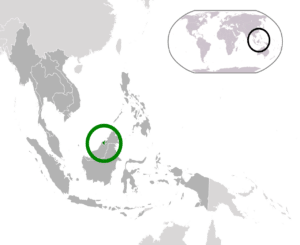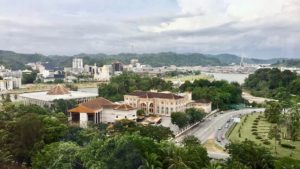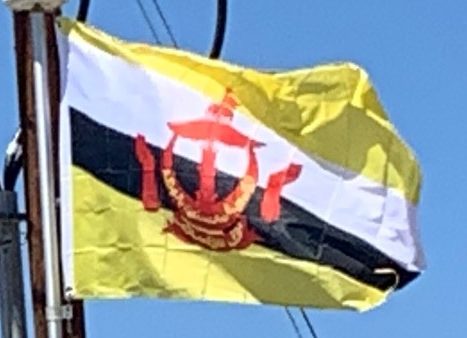Introduction:
Brunei, officially the Nation of Brunei, the Abode of Peace, is a country located on the north coast of the island of Borneo in Southeast Asia. Apart from its coastline with the South China Sea, the country is completely surrounded by the Malaysian state of Sarawak. It is separated into two parts by the Sarawak district of Limbang. Brunei is the only sovereign state completely on the island of Borneo; the remainder of the island’s territory is divided between the nations of Malaysia and Indonesia. Brunei’s population was 423,196 in 2016.

At the peak of the Bruneian Empire, Sultan Bolkiah (reigned 1485–1528) is alleged to have had control over most regions of Borneo, including modern-day Sarawak and Sabah, as well as the Sulu Archipelago off the northeast tip of Borneo, Seludong (modern-day Manila), and the islands off the northwest tip of Borneo. The maritime state was visited by Spain’s Magellan Expedition in 1521 and fought against Spain in the 1578 Castilian War.
During the 19th century, the Bruneian Empire began to decline. The Sultanate ceded Sarawak (Kuching) to James Brooke and installed him as the White Rajah, and it ceded Sabah to the British North Borneo Chartered Company. In 1888, Brunei became a British protectorate and was assigned a British resident as colonial manager in 1906. After the Japanese occupation during World War II, in 1959 a new constitution was written. In 1962, a small armed rebellion against the monarchy was ended with the help of the British.
Brunei gained its independence from the United Kingdom on 1 January 1984. Economic growth during the 1990s and 2000s, with the GDP increasing 56% from 1999 to 2008, transformed Brunei into an industrialized country. It has developed wealth from extensive petroleum and natural gas fields. Brunei has the second-highest Human Development Index among the Southeast Asian nations, after Singapore, and is classified as a “developed country”.
Etymology:
According to local historiography, Brunei was founded by Awang Alak Betatar, later to be Sultan Muhammad Shah, reigning around AD 1400. He moved from Garang in the Temburong District to the Brunei River estuary, discovering Brunei. According to legend, upon landing he exclaimed, Baru nah (loosely translated as “that’s it!” or “there”), from which the name “Brunei” was derived. He was the first Muslim ruler of Brunei.

It was renamed “Barunai” in the 14th century, possibly influenced by the Sanskrit word “varuṇ” meaning “seafarers”. The word “Borneo” is of the same origin. In the country’s full name, Negara Brunei Darussalam, darussalam means “abode of peace”, while negara means “country” in Malay.
The earliest recorded documentation by the West about Brunei is by an Italian known as Ludovico di Varthema, who also said the “Bruneian people have fairer skin tone than the peoples he met in Maluku Islands”.
History:
Early History:
One of the earliest Chinese records of an independent kingdom in Borneo is the 977 AD letter to Chinese emperor from the ruler of Po-ni, which some scholars believe to refer to Borneo. In 1225, a Chinese official, Chau Ju-Kua (Zhao Rugua), reported that Po-ni had 100 warships to protect its trade, and that there was a lot of wealth in the kingdom.
